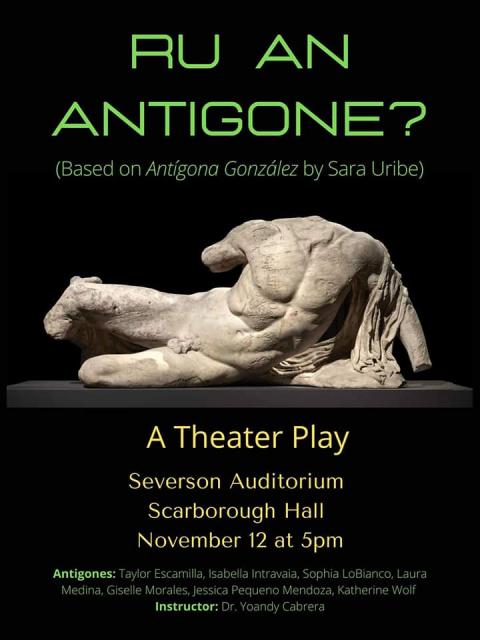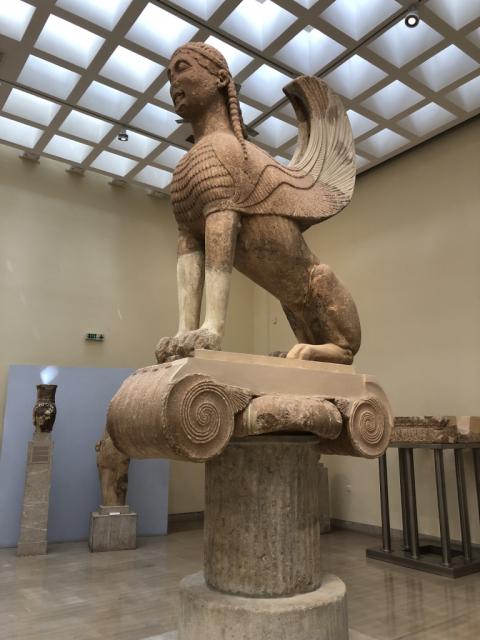SCS Blog Author Page
Posts by Yoandy Cabrera Ortega

|
Blog: RU an Antígone?
RU an Antígone?, a play based on Sara Uribe’s Antígona González, was performed by Rockford University students on November 12, 2021. The performers were part of a fall semester course, CLAS 262, “Staging Politics in Antiquity and Today.” Students from different fields — including Nursing, Biochemistry, Education, Languages, and Political Science — took the stage to become Mexican Antigones and talk about missing people, violence, and disappearances in Latin America today. On stage for the performance were two bodies, transported from the basement of the same building where the performance took place, Rockford University’s Scarborough Hall. A male and a female body. Two bodies “made of stone.” Two plaster casts of two of the so-called “Elgin marbles.” These castings came from Europe to the Art Institute of Chicago in the 19th century and, from there, to Rockford University in 1946. Those Read more … |

|
Blog: Dissertation Spotlight: Understanding Mythological Embodiments of Emotion
This month, we spotlight the graduate research of Dr. Yoandy Cabrera Ortega, who recently defended his dissertation on the portrayal of human emotions in ancient Greek myths and in modern literature from Spain and Latin America. My dissertation was an interdisciplinary one, intertwining different approaches and fields such as classical reception, queer studies, affect theory, and Hispanic studies. The title was “Rage and Desire: Thymotic Impulses in Hispanic Greece” and my advisor is Dr. Hilaire Kallendorf. This study analyzes the differences and similarities among the multiple portrayals of mythological figures as embodiments of human emotions (or “affects” as Freud calls them), especially rage and erotic desire, from Ancient Greece (8th century B.C., with the Homeric poems) to the present. I argue that the fusion Read more … |
